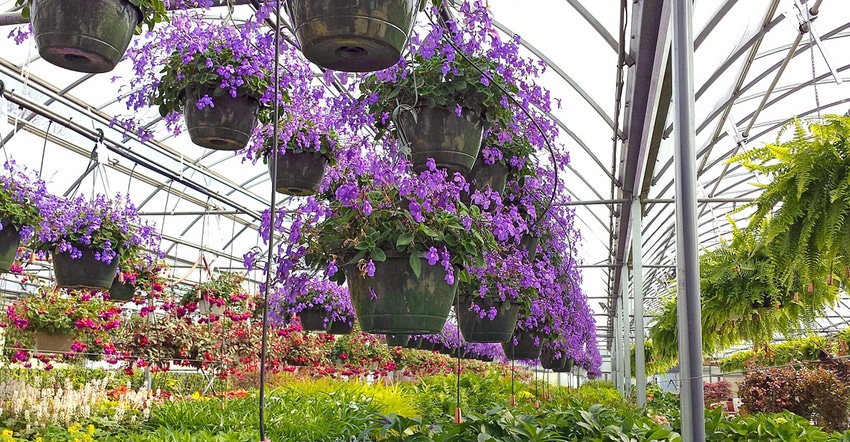April 10, 2020

Despite receiving more than 18,300 messages from farmers and Michigan residents asking Gov. Gretchen Whitmer to allow the retail sale of garden and bedding plants, the administration instead went the opposite direction, announcing an expansion and extension of restrictions in the “Stay Home, Stay Safe" executive order.
Under a new section of the executive order, which runs through April 30, Whitmer imposed new restrictions April 9, saying “large stores must also close areas of the store that are dedicated to carpeting, flooring, furniture, garden centers, plant nurseries or paint.”
Saying there’s further effort needed to reduce crowds, the executive order states, “Large stores must limit the number of people in the store at one time to no more than four customers for every 1,000 square feet of customer floor space; small stores must limit capacity to 25% of the total occupancy limits (including employees) under the fire codes.”
Whitmer’s executive order continuing restrictions for greenhouses and garden centers runs counter to similar orders in Ohio, Illinois, New York and North Carolina, where the retail sale of plants has been deemed essential infrastructure.
Michigan Farm Bureau President Carl Bednarski expressed his disappointment that greenhouse and garden centers are unable to sell nursery stock, flowers and vegetable plants to consumers who are requesting it.
“We respect, without question, the toll COVID-19 has taken and the need to protect public health,” Bednarski says. "But we had hoped to learn that family-owned greenhouses and retail garden centers across the state would be allowed to open and operate in a safe and secure manner, following strict social distancing guidelines and safety protocols recommended by the Centers for Disease Control and Prevention. Unfortunately, that isn’t the case.”
Financial toll
The heightened restrictions within the executive order are expected to take a significant toll on an important sector of Michigan agriculture, with estimated annual sales of $580 million to $700 million, and employing more than 9,000 workers.
“With these farms missing their primary window of opportunity to sell, growers and employees could face an entire year without income,” Bednarski says. “For many greenhouse and nursery growers, their season is right now. When it’s gone, it’s gone.”
Bednarski emphasized again that Michigan growers are committed to protecting the health of the public and their employees and are confident they can implement alternative sales and services practices that allow them to still operate.
“We aren’t going to give up on our growers or consumers who are asking for concessions,” Bednarski says. “Michigan Farm Bureau will continue to urge growers and consumers to speak up on behalf of greenhouses and garden centers and ask the Whitmer administration to find a practical, safe solution.”
Under the new order, all public and private gatherings among people outside a single household remain temporarily prohibited. Although Michiganders may leave the house to get groceries or needed supplies, the new order encourages people to limit the number of household members running errands to the maximum extent possible.
The new executive order allows for people to engage in outdoor activities such as walking, hiking, running, cycling, kayaking, canoeing, or any other recreational activity consistent with remaining at least 6 feet from people who are from outside a person’s household, and with other restrictions imposed by prior executive orders.
Beyond the financial impact on growers, retailers and employees, Michigan Farm Bureau argued that the mental health benefits of gardening remain relevant.
“As residents continue dealing with impacts of the coronavirus on their lives, many would turn to gardening to cope with stress, no different than those who turn to puzzles, reading or music for similar benefits,” says Audrey Sebolt, MFB’s horticulture specialist. “If we can’t get flowers, vegetable plants or nursery stock into their hands, they unfortunately lose an avenue and outlet to help them handle our current situation.”
Source: Michigan Farm Bureau, which is solely responsible for the information provided and is wholly owned by the source. Informa Business Media and all its subsidiaries are not responsible for any of the content contained in this information asset.
Read more about:
Covid 19You May Also Like




